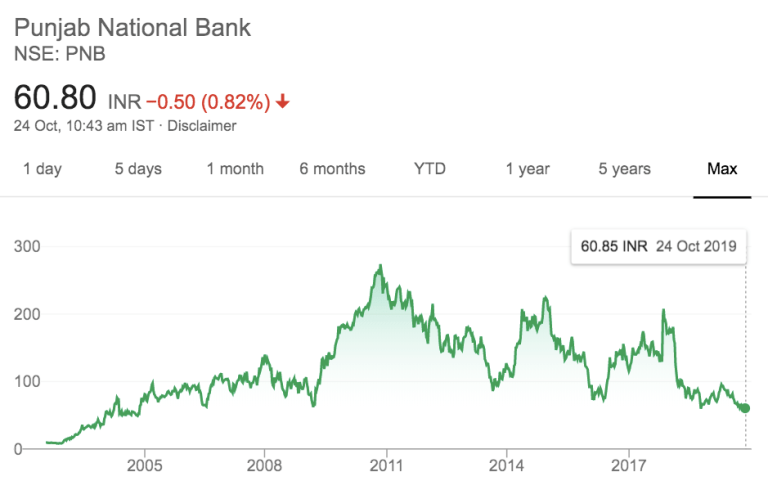Top-performing fund says small-cap IPOs offer value
Outline of the Article
H1: Introduction
- Brief explanation of the topic
- The importance of small-cap IPOs
H2: Understanding Small-Cap IPOs
- Definition of small-cap IPOs
- How they differ from other investments
H3: Benefits of Small-Cap IPOs
- Potential for high returns
- Diversification in a portfolio
H4: Risks Involved
- Market volatility
- Liquidity issues
H5: Top-Performing Fund’s Perspective
- Insights from a successful fund
- Why they believe in small-cap IPOs
H6: Strategies for Investing in Small-Cap IPOs
- Research and due diligence
- Long-term vs. short-term investment
H7: Case Studies
- Real-life examples of successful small-cap IPO investments
- Lessons learned from these cases
H8: Key Factors to Consider
- Market conditions and trends
- Regulatory changes
H9: Tips for Successful Investing
- Diversify your portfolio
- Consult with financial experts
H10: Conclusion
- Recap of the article’s main points
- Encouragement for considering small-cap IPOs
H11: Frequently Asked Questions
- FAQ 1: Are small-cap IPOs suitable for all investors?
- FAQ 2: How can I identify promising small-cap IPO opportunities?
- FAQ 3: What are some common mistakes to avoid when investing in small-cap IPOs?
- FAQ 4: How do small-cap IPOs perform in different economic conditions?
- FAQ 5: Can I invest in small-cap IPOs through a fund or ETF?
Top-Performing Fund Says Small-Cap IPOs Offer Value
In the ever-evolving landscape of investments, one avenue that has recently garnered a great deal of attention is small-cap initial public offerings (IPOs). These smaller, emerging companies have the potential to offer significant value to investors. In this article, we will explore the world of small-cap IPOs, understand why they are gaining popularity, and learn from a top-performing fund’s perspective on their value.
Introduction
Small-cap IPOs refer to initial public offerings of companies with a relatively small market capitalization. These companies are often in their early stages, seeking growth opportunities, and looking to expand their operations. Investing in small-cap IPOs can be an attractive prospect due to the potential for high returns. Let’s delve deeper into what makes them a worthwhile consideration.
Understanding Small-Cap IPOs
Small-cap IPOs are distinct from other types of investments, such as established blue-chip stocks or large-cap companies. These companies are in a phase of growth and expansion, which can lead to higher volatility but also higher returns. They tend to be riskier investments, making them suitable for investors seeking diversification in their portfolio.
Benefits of Small-Cap IPOs
Potential for High Returns
One of the key attractions of small-cap IPOs is the potential for substantial returns on investment. These companies often have untapped growth potential, and if they succeed in their endeavors, early investors can benefit significantly.
Diversification in a Portfolio
Including small-cap IPOs in your investment portfolio can help diversify your risk. Their performance may not always correlate with larger stocks or market indices, which can be a boon during economic fluctuations.
Risks Involved
Market Volatility
Small-cap IPOs are known for their inherent volatility. The prices of these stocks can fluctuate dramatically in a short period. This volatility can present both opportunities and risks for investors.
Liquidity Issues
Due to their smaller market capitalization, small-cap IPOs may lack liquidity. Selling your holdings in these companies can be more challenging, particularly when compared to larger, more established stocks.
Top-Performing Fund’s Perspective
Some top-performing funds have recognized the potential of small-cap IPOs. They see these investments as opportunities to achieve superior returns over the long term. By including small-cap IPOs in their portfolios, these funds aim to capitalize on the growth prospects of emerging companies.
Strategies for Investing in Small-Cap IPOs
When considering investing in small-cap IPOs, it’s essential to conduct thorough research and due diligence. Understanding the company’s business model, leadership, and growth plans is crucial. Additionally, you must decide whether you are looking for a long-term investment or a shorter-term play.
Case Studies
To gain insights into the success of small-cap IPO investments, let’s examine a few real-life case studies. These examples will illustrate how some investors have achieved remarkable returns by carefully selecting small-cap IPOs and managing their investments wisely.
Key Factors to Consider
When contemplating small-cap IPO investments, it’s essential to keep an eye on market conditions and trends. Assessing the regulatory environment and understanding how it might affect the companies you’re considering can be a critical factor in your decision-making process.
Tips for Successful Investing
To maximize your chances of success when investing in small-cap IPOs, consider the following tips:
- Diversify your portfolio to spread risk.
- Consult with financial experts for guidance and advice.
Conclusion
In conclusion, small-cap IPOs can indeed offer significant value to investors willing to navigate the potential risks. They provide an opportunity to participate in the growth of emerging companies and diversify your investment portfolio. However, it’s essential to approach these investments with caution, conduct thorough research, and seek professional advice if needed.
Frequently Asked Questions
FAQ 1: Are small-cap IPOs suitable for all investors?
Small-cap IPOs may not be suitable for all investors. They are riskier investments and may require a higher risk tolerance. It’s essential to assess your financial goals and risk appetite before investing in small-cap IPOs.
FAQ 2: How can I identify promising small-cap IPO opportunities?
Identifying promising small-cap IPO opportunities requires in-depth research. Look for companies with strong growth potential, innovative business models, and competent leadership. Consider consulting financial experts or analysts for recommendations.
FAQ 3: What are some common mistakes to avoid when investing in small-cap IPOs?
Common mistakes when investing in small-cap IPOs include not conducting proper research, failing to diversify, and panic selling during market volatility. Avoid these mistakes by staying informed and making informed decisions.
FAQ 4: How do small-cap IPOs perform in different economic conditions?
The performance of small-cap IPOs can vary in different economic conditions. They may perform well during economic booms but be more vulnerable during recessions. It’s important to monitor economic trends and adjust your portfolio accordingly.
FAQ 5: Can I invest in small-cap IPOs through a fund or ETF?
Yes, you can invest in small-cap IPOs through mutual funds or exchange-traded funds (ETFs) that focus on these investments. These funds offer diversification and professional management, making it easier for investors to access this asset class.







